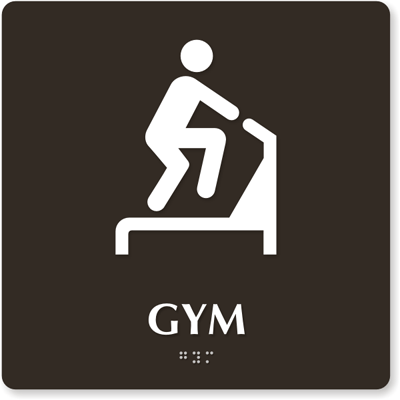We all know that getting enough exercise is a vital part of staying healthy. What you may not know is that the older you get, the more important it is for you to work out regularly. As your body starts to change, you not only may experience hot flashes and mood swings, you’re also at a higher risk for dangerous diseases. The good news is that many menopausal symptoms can be helped or even stopped through regular physical activity.
One of the biggest concerns for women approaching menopause is the loss of bone mass. This can lead to osteoporosis and other serious consequences. Many doctors suggest getting plenty of calcium to help prevent bone deterioration, but this is just the first step. Getting regular, weight-bearing exercise is also essential for maintaining good bone health. If you’re not in very good shape, walking other light exercise can be enough to get started. You should eventually work yourself up to resistance training. This is the best way to slow or even stop loss of bone mass. You should also consider adding flexibility training; being limber will keep you from getting injured sometime down the road. (Yoga is often a great choice, as it combines weight-bearing exercise with flexibility training - and in some types of yoga, even cardiovascular benefits.)
Along with osteoporosis, women who have reached menopause are also at an increased risk of developing heart disease. Many women assume that only men are at risk, but heart disease is a top killer of women as well as men. Plus, women are less likely to know they’re having a heart attack, so they don’t get treatment as quickly. Regular aerobic exercise can do wonders for keeping your heart in good shape. Even if you aren’t going through menopause yet, getting regular exercise is a great way to keep your heart healthy for a long time.
Another common symptom of menopause is mood swings. As estrogen levels fluctuate, so do your emotions. And unlike mood changes due to your menstrual cycle, menopausal mood fluctuations are much less predictable. Exercise can work to ease symptoms of depression, decrease mood fluctuations, and decrease irritability. Exercise helps you to be more emotionally stable so you can worry about more important things.
With the onset of menopause, many women gain weight. While it’s usually not a substantial amount, it can increase the risk of certain weight related diseases. Regular exercise can help you keep your weight in check, reducing the risk of serious health problems in the future.
If your biggest concern about menopause is the immediate physical symptoms, exercise can be a great cure for you too. Many women notice a decrease in hot flashes and other physical symptoms when they go on a regular exercise program.
Sure, regular exercise takes some planning and work, but your health is worth it, so get out and get moving - no matter what age you are!



No comments:
Post a Comment